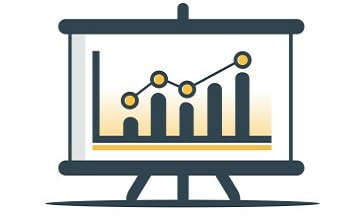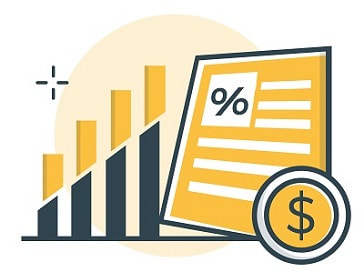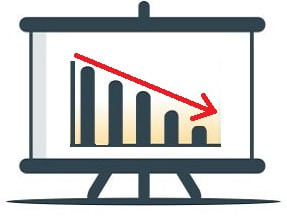How to Start Investing (When You're Afraid to Lose Money and Don't Like Taking Risks)
Our guide offers a step-by-step process for risk-averse investors to begin creating wealth. Learn how to approach savings and budgeting, understand expected returns for different investments, and avoid common mistakes. We also list tips for investing and explain answers to frequently asked questions.
Updated 14 September 2023
Summary
Our guide covers:
Summary
- There are two main types of people when it comes to investing: risk-averse individuals and those who are more comfortable with risk.
- If you fall into the risk-averse category, you may hesitate to invest because you might worry about losing your hard-earned money or think you can't afford to invest. However, this opinion may not always be the best long-term approach to building wealth.
- There are plenty of options for low-risk investments, and many people comfortably start small and increase your investment amount over time.
- The best starting point is to create a savings plan and budget to reach your financial goals.
- If you're worried about losing money, then it's important to remember that no one becomes a successful investor overnight. It takes patience, time, and discipline to be successful.
- If you're willing to commit to learning about investing and staying invested for the long term, then you can achieve your financial goals. Our investing guides and comparisons offer lots of information to help.
- Returns are what you can expect to earn on your investments over time, and they will fluctuate depending on the market. In general, shares offer higher returns than cash investments like term deposits.
- Understanding your risk tolerance is essential when deciding how to invest your money.
Our guide covers:
MoneyHub Founder Christopher Walsh explains how can you start investing if you're risk-averse:
|
"If you're risk averse, you might think investing is too risky. After all, there's always the chance that you could lose money, and there's always news about how much global and New Zealand markets are down. But it's important to remember that there's also the chance that you could make money".
"In fact, over the long run, shares and funds have historically averaged returns of around 8% to 10% per year. So if you invest in shares or funds, there's a good chance that you'll make money over time". Of course, there are no guarantees, and there will be many uncertain periods along the way, but if you're patient and stay invested long-term, chances are good that you'll come out ahead". "It's also important to remember that not all investments are created equal. Some investments, term deposits, are considered to be relatively safe. You get this safety because when you invest in term deposits, you lend money to a bank who then lends it out to home owners to fund mortgages. In return, the banks agrees to pay you back over time with interest. You'll get a guaranteed a stream of income through interest payments and will likely get your principal (money) back at the end of the term deposit's duration". "On the other hand, shares are riskier because there's no guarantee that the company will do well, no obligation to pay dividends, and the share price could go down. However, shares generally have a higher upside (can be a higher return investment) than term deposits". "While one option is to invest in low-risk investments like term deposits. Another option is to start slowly by investing a small amount of money each month. You can also create a savings plan to automatically invest a set amount of money each month without thinking about it. This strategy can help remove the emotion from investing and make it easier to stick with your investment plan, and, over time, you'll build up a nest egg that will benefit you throughout your life". |
Christopher Walsh
MoneyHub Founder |
How Should Risk-Averse People Approach Savings?
Savings are critical for anyone looking to invest, especially risk-averse individuals. When you have money saved, you can afford to lose some of it without risking your future. Savings also allow you to take advantage of investment opportunities when they come along, such as investing in a share that suddenly drops in price.
If you're risk averse, you should consider saving up for 6 to 12 months of living expenses before investing. These savings will give you a cushion if anything happens and prevent you from selling any investments to meet your short-term costs. Once you have some money saved, you can start budgeting for your investment plan.
The most popular option for new investors is to set aside a fixed percentage of your monthly income to invest (the higher, the better). Then, automate your investments so that the money is regularly transferred from your bank account to your investment account. This automation helps to ensure that you're sticking to your investment plan and not withdrawing the money for other purposes (such as eating out at restaurants, buying luxury clothes or travelling). While spending money on these things is normal and part of everyday life, it's important to set up individual accounts to save towards these items and not take money from your dedicated savings or investment accounts to spend on these things.
If you're risk averse, you should consider saving up for 6 to 12 months of living expenses before investing. These savings will give you a cushion if anything happens and prevent you from selling any investments to meet your short-term costs. Once you have some money saved, you can start budgeting for your investment plan.
The most popular option for new investors is to set aside a fixed percentage of your monthly income to invest (the higher, the better). Then, automate your investments so that the money is regularly transferred from your bank account to your investment account. This automation helps to ensure that you're sticking to your investment plan and not withdrawing the money for other purposes (such as eating out at restaurants, buying luxury clothes or travelling). While spending money on these things is normal and part of everyday life, it's important to set up individual accounts to save towards these items and not take money from your dedicated savings or investment accounts to spend on these things.
How should risk-averse people approach budgeting?
- Budgeting is another important tool for anyone who wants to start investing. When you budget, you track where your money is going and ensure you put aside enough each month to reach your financial goals.
- This budgeting process also includes setting aside money for investments. Of course, if you're worried about losing money, you can always start with a smaller amount and increase it over time as you become more comfortable with investing.
- To get started, list out all of your income and expenses for a month (either download this as an excel file from your bank or manually type/write these out). Then, look at where you can cut back on expenses to have more money to invest.
- For example, you may want to spend less eating out at restaurants or reduce the number of subscriptions you have. Once you have extra money available each month, you can start setting aside this money for your savings or investment accounts.
- Then, you can either automate your investments so that the money is transferred from your checking account to your investment account regularly or make manual transfers when you have extra money available.
Our guides to cutting back on expenses and how to invest regularly have further details.
What are some expected returns for different types of investments?
- Returns are what you can expect to earn on your investments over time. For example, if you invest in a share that goes up by 10%, then you've earned a 10% return on your investment. Of course, returns can be positive or negative and fluctuate heavily over time.
- When it comes to expected returns, there is no guaranteed investment. However, looking at their historical returns, you can get an idea of what different types of investments may offer. For example, the S&P 500 has had an average annual return of around 10%+ over the past ten years. So, if you invested $10,000 in the index, your investment would be worth around $31,000 after ten years.
- Different types of investments have different expected returns. For example, shares typically have higher expected returns than term deposits or savings accounts. Over the long term, shares have outperformed term deposits. So if you're investing long-term, you may be willing to accept higher volatility in exchange for the potential to earn a higher return.
- ETFs and index funds are generally made up of a basket of shares so that they will return similar returns to a sharemarket. However, when purchasing ETFs and index funds, you'll have to pay (low) fees to the ETF providers for creating and managing these products. ETFs also offer the potential for diversification since they often hold hundreds of different shares in various sectors.
- ETFs are a good option for investors looking to save on fees (compared to actively managed funds, where you may be paying upwards of 2% a year on fees) and get diversification to reduce risk.
- For more information on ETFs, check out our guide here. We also compare Index Funds and ETFs.
- Bonds usually have lower expected returns than stocks but are considered less risky. So if you're investing long-term, you may want to include some bonds in your portfolio to help offset the volatility of stocks or ETFs. Our guide to bonds in New Zealand has more details.
- Bank savings accounts and term deposits usually have low expected returns since they offer low-interest rates. These bank interest rates are dictated by where the Official Cash Rate (OCR) is sitting. Currently, the OCR is at 3.5%, meaning most banks will offer savings accounts an interest rate around or below this level, whilst term deposit rates will be slightly above the OCR rate. For more information on interest rates on term deposits, savings accounts and checking accounts, check out more information on comparing interest rates.
Important: Past performance isn't an indicator of future returns, and there is always the potential for loss. However, if you're investing for the long haul, you can generally afford to ride out the periods of high market volatility.
What are the main things to keep in mind when choosing investments?
- There are a few things to understand when choosing investments. First, you need to decide what your goals are. Are you investing for retirement or another financial goal? How much risk are you comfortable taking? Your answers to these questions will help dictate what investments are appropriate for you.
- Next, you need to consider your time horizon, defined as the amount of time you have to reach your goal. For example, if you're investing for retirement, you may have a time horizon of 20 or 30 years. However, your time horizon will be shorter if you're investing for a shorter-term goal. The longer your time horizon is, the more risk you can afford to take since you have more time to ride out volatility in the market.
- Finally, it would be best to consider your circumstances, including your income, debts, and other financial obligations.
What are the Most Common Mistakes that Investors Make?
1. Not diversifying
2. Not having a plan
3. The mismatch between target return and asset allocation
More details: Our guide to investing mistakes explain other problems investors face which has been published to help you learn.
- One of the most common mistakes investors make is not diversifying their portfolios. Diversification is important because it helps to offset the risk of any one investment.
- For example, your portfolio will lose value if you only invest in shares and the sharemarket decreases. However, if you're diversified and have bond and term deposit investments, the share decline may be offset by non-share gains.
2. Not having a plan
- Another popular mistake is not having a clear investment plan, defined as knowing your goals and how you will achieve them. Short-term fluctuations in the market make it easy to get sidetracked without a plan.
- Too often, people look at the day-to-day share price movements - however, investing is a long-term activity.
3. The mismatch between target return and asset allocation
- Many investors don't give enough thought to their expected return. They assume that all investments will go up in value over time. However, this is not always the case. It's important to understand the potential return of an investment before you make it
More details: Our guide to investing mistakes explain other problems investors face which has been published to help you learn.
What are some tips for getting started with investing?
If you're new to investing, there are a couple of things that you should do to get started. First, start by saving up some money. You don't need thousands to start investing, but you do need enough to cover the costs of your investment. Additionally, make sure to educate yourself about investing. There are many resources available online, including our investing resources. The more you know about investing, the better equipped you'll be to make good decisions. While investing can be a great way to reach your financial goals, it's essential to understand the basics before you get started.
Frequently Asked Questions
How much money should I have to start investing?
You can start investing with any amount of money, but it's important to remember that the more money you have to invest, the greater your potential returns will be. That said, you don't need a heap of money to start. Many platforms, such as Sharesies and Tiger Brokers, have no minimum investment amounts (through fractional share ownership) that allow Kiwis with any amount of money to start investing. Our comprehensive guide to Sharesies vs Tiger Brokers has more details,
What are some low-risk investments?
Bonds are considered relatively safe investments because you're lending money to a company, entity or government, and they agree to pay you back over time with interest. Savings accounts, call accounts and term deposits are also low-risk options. However, these investments usually have lower returns than shares.
Can I lose money if I invest in bonds?
Yes - it's possible to lose money on any investment, but bonds are generally considered low-risk, meaning they're less likely to lose value than other investments like shares or funds. However, bonds can still lose value if interest rates rise or the issuer defaults on their payments.
What is an automated savings plan?
An automated savings plan automatically transfers money from your everyday account to your savings account (either weekly or monthly). This savings plan can help you to save money without having to think about it- making it easier to reach your financial goals. You can set up a savings plan with most banks (such as ASB, ANZ, Westpac and Kiwibank) and credit unions.
How do I know if investing is right for me?
The best way to determine if investing is right for you is to understand what your goals are and what your financial future will look like. If you're unsure about what you want, you may want to speak with a Financial Advisor. They can help you to understand the risks and potential rewards of investing, and they can create a customised plan that meets your unique needs. However Financial Advisors aren't without their risks, and we strongly suggest comparing providers to find one you're comfortable with.
What's the best way to start investing?
There is no right answer to this, as the best way to start investing will vary depending on your circumstances. However, some tips to get started include joining KiwiSaver, signing up for an investing platform (such as Superhero, Hatch, Tiger Brokers, Sharesies or Stake), and investing in index funds.
What are the risks of investing?
A few risks are associated with investing, including the risk of losing money, the risk of not making any money, and the risk of volatile markets. However, there are also potential rewards - such as the chance to earn high returns and build long-term wealth. Ultimately, weighing the risks and rewards of investing is important before deciding if it's right for you.
Why should I invest in shares?
Shares offer the potential for high returns, which can help you to achieve your financial goals more quickly. They can also be a solid way to diversify your investment portfolio and reduce your overall risk. However, shares are also more volatile than other investments, so it's important to consider your risk tolerance before deciding if they're right. If you feel uncomfortable about the price (and therefore the value of your investment) going up and down everyday, then shares may not be suitable. An alternative would be a managed fund which investments in many shares.
What is the difference between saving and investing?
Saving typically refers to putting money into a low-risk account like a savings account or a term deposit. On the other hand, investing involves putting money into riskier asset allocations like shares, ETFs or real estate (REITs). Savings accounts have lower returns but are less risky, while investments have higher returns but are riskier. Ultimately, deciding your goals and how much risk you're comfortable taking is important before deciding whether to save or invest your money.
What is the difference between a share and a bond?
A share represents ownership in a company, while a bond represents a loan you make to the New Zealand government (through the treasury) or a company. When you invest in a share, you effectively become a part-owner of the company and may receive dividends (a portion of the company's profits). When you buy a bond, you're lending money to the government or company, and in exchange, they agree to pay you back over time with interest. Both stocks and bonds can be bought/sold on the stock market.
How do I buy shares?
You can buy stocks through a brokerage account. Brokerage accounts allow you to buy and sell investments like stocks, bonds, and ETFs. You can find a comprehensive review of the most popular investment platforms here.
Investing Platform Reviews:
Popular Comparisons
Popular Guides
- Superhero, Hatch, Tiger Brokers, Sharesies and Stake
Popular Comparisons
- Sharesies vs Hatch vs Stake
- Hatch vs Stake
- Sharesies vs Tiger Brokers (NZ)
- Sharesies vs InvestNow vs Hatch vs Jarden Direct and more
- Best Investment Apps
- Virtual Stocks and Shares Trading Games
Popular Guides





